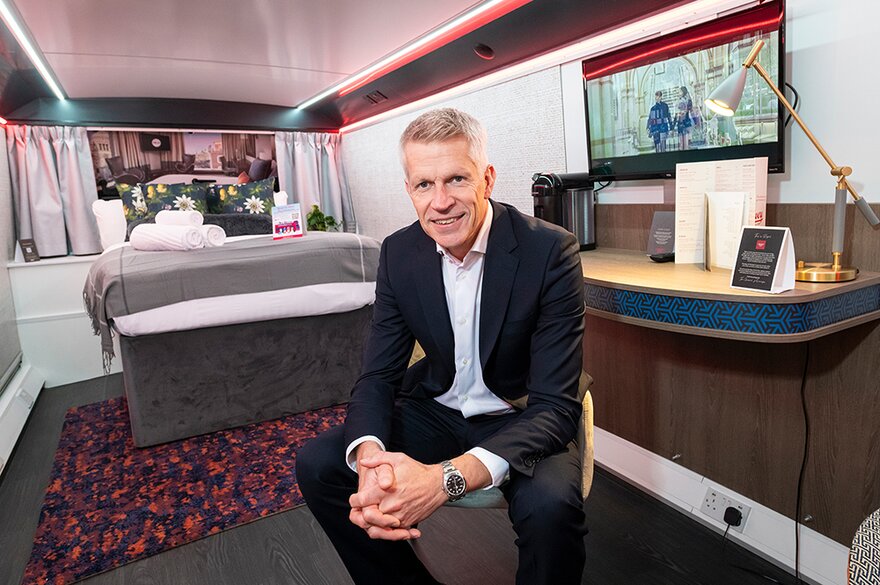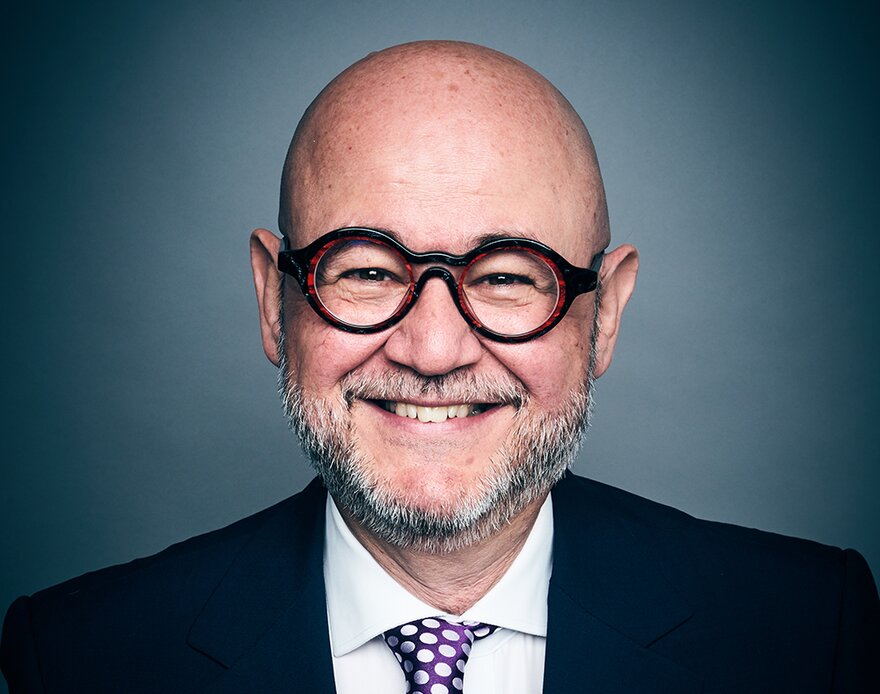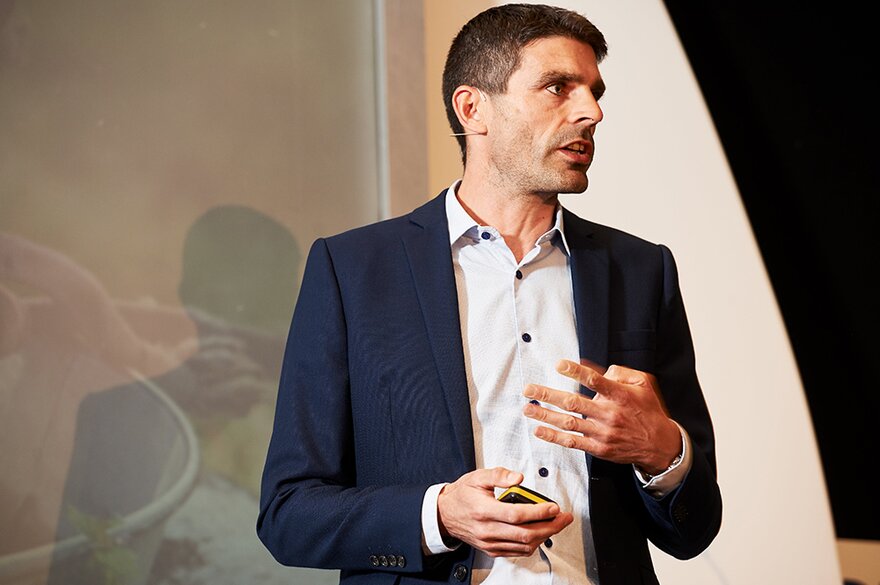The mid-market hotel space is alive with competition for guests, who are looking for something a little bit different. Katherine Price reports
Questions around the sustainability of the mid-market hotel segment have abounded over the years, with reports of the sector being squeezed between the budget operators and the luxury market. Post-pandemic, further questions arose around the segment's profitability compared to the resilience of luxury and the more recession-proof budget brands.
However, reports of the death of the middle market hotel appear to have been greatly exaggerated. According to HotStats, gross operating profit (GOP) margin in the year to date for the UK's midscale hotels has returned to 2019 levels (28%), while GOP per available room in May was 32% above 2019 levels.
"It's always been a very stable market," says Dimitris Manikis, president of Europe, the Middle East, Eurasia and Africa (EMEA) for franchise business Wyndham Hotels & Resorts. "Mid-market is the segment that attracts the majority of the consumers out there… for leisure or business travel."
But what defines a midscale hotel in 2023 and, more importantly, what does a customer expect of one?
For Jason Carruthers, managing director of Leonardo Hotels, it's all about the basics: speed and ease of booking as well as good WiFi, TV, lighting, shower, soundproofing, and a bed.
"They may sound obvious, but these are the drivers for us of good satisfaction scores," he says. "Generally, it's a full-service, non-luxury hotel offering," adds Shaun Roy, partner – head of hotels and specialist property investment at Knight Frank.
"But that has been blurred a little bit – look at some of the boutique, compact hotels in places like London. When you actually go into the rooms, they're amazing. But can you really call a 12 sq m room anything other than compact or budget or mid-market?
"Operators have really worked out what consumers want, and that's totally different in totally different locations. Do they need the gym, the desk in the room and all the room service? Probably not, and people are wising up and thinking, ‘I'm paying for all this – even if I don't use it, do I really need it?' They're working out what they really need from their hotel experience and trying to find something that matches."
Jim Muir, commercial director at marketing consortium Best Western Hotels GB, doesn't entirely buy into the concept of ‘mid-market', despite 80% of the group's 270 members probably falling under that category.
"From the perspective of a consumer I'm not sure it's a particularly meaningful label. Budget/economy generally means something in the eyes of the consumer, and top end luxury means something, but I don't think people set out to book a mid-market property. Decision-making is driven very much on location, price, the reason for their stay, and what kind of stay they want," he explains.
"What sits between is such a huge, disparate bunch of properties… when we look at the properties within our brand, they're a very diverse pot and it depends on the location and what the customer type is. We have some hotels that you would say are mid-market and they've got golf and spa, and we've got some hotels that you'd equally say are mid-market that have got none of those things, because they're in a very different location with a different customer."
The mid-market category is no longer defined by price
Manikis also says the boundaries have blurred and suggests that the category is not defined by price anymore. Indeed, average daily rates (ADR) hit an all-time high of £162.85 across the UK in June, according to the RSM Hotels Tracker.
"The midscale in my mind has moved to the top end of the market," says Paul Harper, commercial director of Daish's Holidays, which has a portfolio of 12 properties in the UK.
"Because of the price that's being charged… the expectation is almost the same in terms of customer service as it would be for a four- or five-star hotel."
Equally, due to cost pressures on both customer and corporate budgets, the guests looking at this segment may have changed, too.
"Money is tighter, certainly than it has been in a long time," says Harper. "There's been a desire to know you're getting what you want."
As budgets get tighter, rather than not travel at all, guests will tend to ‘trade down' on the cost of their accommodation so they can still afford the trip, something the mid-market hotel segment caters well to, points out Sam Kazhary, executive vice-president and head of corporate development at Selina Hotels. The Latin American mid-market lifestyle brand debuted here in 2019 and now has six hotels open and operational in the UK.
"People staying in mid-market would have been staying at five-star and are now staying at four-star," agrees Roy. But as a result of this economic environment, Carruthers stresses that price, value for money and customer experience are more important now than ever, "particularly given the amount of choice there is".
Kazhary says that Selina has been picking up more business travel as companies increasingly focus on margins, although he adds that it has also been to do with the changing nature of the business traveller.
"It's not necessarily the formal business traveller that's wearing a suit anymore," he explains. "The world has adapted and changed, people are a bit more casual, and that's the sort of business traveller we've started picking up."
And with the increase in hybrid work meaning guests no longer need to be back in the office on a Monday morning, they are of course staying for longer. But to make the most of this and be an attractive proposition for remote workers, says Kazhary, the provision must improve.
"[Before] you had the space to do something, but it was so cold and bland that people didn't feel comfortable," he says. "You're starting to see those lobbies get slightly repositioned to become a little bit homelier and more inviting."
Hotels will also have to provide the amenities to support that extended stay, he adds: "You can't charge £40 to wash a handful of items, so do you have to introduce a laundromat inside your building?... I think there are a lot of services that are going to be clamped on such as that to support the longer length of stay."
Most Selina properties have laundry facilities for guests to use, as well as kitchen spaces, and from the end of the year, Selina will be turning its attention to optimising its F&B operations, which Kazhary describes as low-hanging fruit that will help drive business.
Although even this has its obstacles, and Harper highlights how food inflation has been a major challenge to the market on top of increasing utility and staff costs.
"As a business that operates on a half-board basis for 99% of our customers, it adds a very significant increase because it's built into the package that we offer," he says.
"We can't just change the price of our menu on any given night. Our brochure for holidays [happening] now came out in the middle of last June. That's an additional challenge for us. We couldn't pass on and wouldn't want to pass on the cost levels, so from our point of view, it's how do we still deliver the good quality menu that we wish to deliver, and our customers want, without breaking the bank?"
The answer for Daish's has been a new standardised menu across its hotels to allow them to get better deals on ingredients by buying in bulk. "The demand is there. The challenge has been controlling the costs rather than bringing in top line revenue," says Harper.
For operators that can balance the cost pressures, performance is looking positive. Daish's is ahead of an expected 12% increase in turnover on last year, with another record year expected for 2024. Muir says Best Western GB has seen ADR increase across every segment, especially in London, as well as the return of business travel, and anticipates continued growth of occupancy and ADR "albeit slowing down a little bit on last year".
An increasingly competitve middle ground
However, it's an increasingly competitive landscape out there and hotels will have to remain relevant to capitalise on this demand. Even while this article was being written, IHG Hotels & Resorts launched midscale conversion brand Garner (see panel), and 54% of IHG's pipeline signings are for its midscale brands.
"It's getting over-crowded," admits Manikis, adding that a brand's identity must be well-defined if it is to succeed in this environment.
Guests still value independence in the mid-market, suggests Roy, and Muir agrees midscale independent hotels are at a sweet spot to capture this interest: "At the bottom end of the market [branding] probably gives people certainty of the product and reassurance you're going to get a decent stay. But as you move up, that's increasingly unappealing. Especially in the mid-market, people want something a bit different – experiences, to be surprised, something with personality," he says.
Leonardo continues to see opportunities for its midscale core Leonardo brand and Carruthers is confident that reinvestment is key to ensuring it is well-positioned to capitalise on leisure demand that "shows no sign of slowing down".
"Guests have a lot of choice, because there have been a lot of new openings, certainly in the last two or three years. Our customers are definitely more savvy and have more tools at their disposal to help decide which hotel they want to stay at, to benchmark prices and quality of the experience and location," he says.
Newer Leonardo hotels are being equipped with more public spaces that aren't necessarily bars or restaurants, for people to use for work or socialising, and as the company refurbishes its older properties, they too will catch up. "We can see it appeals to a younger audience and serves as a benchmark for future assets," says Carruthers.
Harper agrees it's important to keep the product improving, while also highlighting that the price of this has also increased: "What we were able to secure and do three to four years ago compared to how far money will go now is not as far, so we're going to have to be more choosy about what we can and can't do."
"You're only able to achieve five or six rooms for what you could have done for 10 rooms… Our philosophy is still very much to buy right the first time. If you buy cheap, you buy twice, so the commitment to quality has to remain, it's just more of a challenge of: where do you spend it and what is going to give you the best return on investment?"
Financing may prove a challenge across the board for different reasons, from the independents and smaller chains to the bigger brands – the independent players may not have the resources to pivot quickly, while the bigger brands will have massive portfolios to readjust.
The multitude of challenges – meeting higher consumer expectations, catering to the shift in consumer behaviour and standing out in a proliferated market where margins continue to be squeezed by cost increases – is arguably making the mid-market a more challenging operational environment than ever before.
"Safety, affordability, values, sustainability, being environmentally friendly – those are the sorts of things we have to deliver on and are going to be some of the challenges to this group from a resource perspective," says Kazhary.
But there remains a bullishness among hoteliers about the future of the mid-market and its role in the industry despite this, while customers still want "the feeling of mid- market", suggests Roy.
"I absolutely believe there is a place for the mid-market hotel, but it is quite a congested area, so you've got to have a strong brand," says Carruthers. "You've got to consistently re-invest."
Manikis, meanwhile, feels that the middle market's strength lies in the loyalty it generates: "People move from one luxury product to another. In the mid-market, there's far more loyalty from a consumer point of view, because of the price they pay, the products and services they receive, and how familiar they are with a brand," he says.
"If you put all this together, I believe mid-market is the place that you're going to see most of the growth in the years to come. Not just in the UK, but around the world."
Introducing Garner
IHG Hotels & Resorts committed further to the midscale market recently with the launch of Garner, a midscale conversion brand, with plans for more than 500 Garner hotels over the next decade.
Described as ‘easy going stays that get you on our way', Garner aims to deliver higher returns for owners in the segment. The brand is set to offer a lower price point and conversion cost per key than IHG's upper midscale brand, Holiday Inn Express.
IHG said it had received "more than 100 definitive expressions of interest" with the first Garner hotel expected to open towards the end of the year.
Continue reading
You need to be a premium member to view this. Subscribe from just 99p per week.
Already subscribed? Log In







